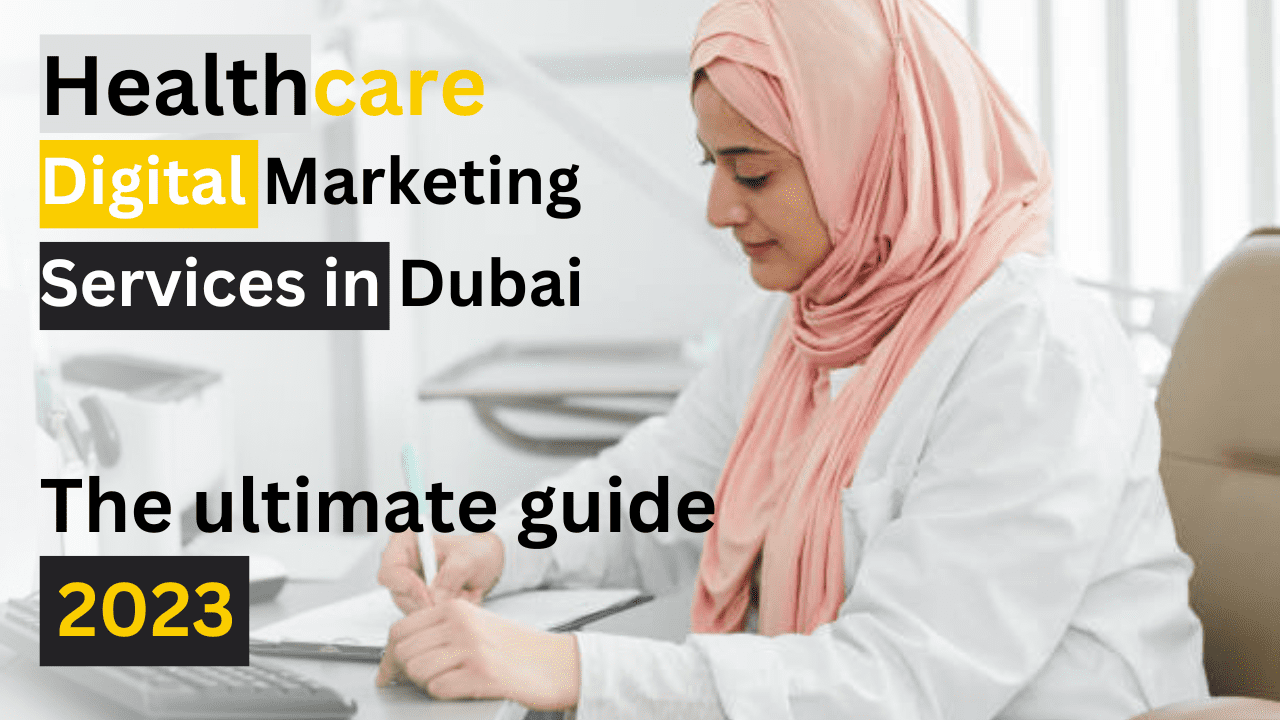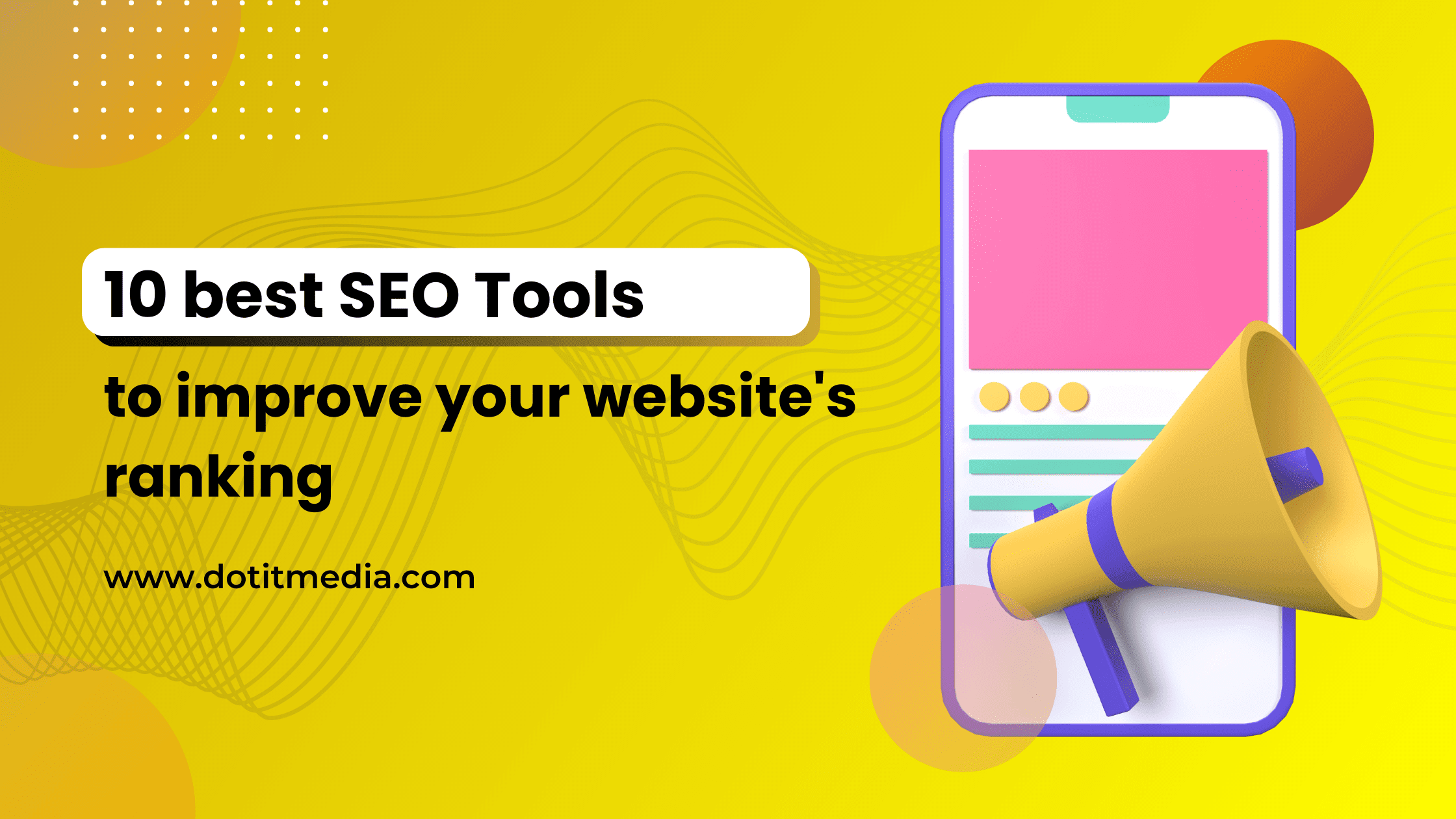Healthcare digital marketing services in Dubai is in huge demand and parallelly the healthcare industry in Dubai is growing rapidly, and competition among healthcare providers is becoming increasingly fierce. In this competitive market, it’s essential to have a strong digital marketing strategy in place to attract and retain patients.
According to a report by Grand View Research, the global healthcare digital marketing market is expected to reach $15.6 billion by 2028, growing at a CAGR of 16.3% from 2021 to 2028. This growth is being driven by increasing internet penetration, the rise of social media platforms, and the growing adoption of mobile devices.
In the UAE, healthcare providers are increasingly adopting digital marketing tactics to reach their target audience. According to a report by Khaleej Times, 94% of healthcare providers in the UAE are using social media to engage with patients and promote their services.
In Dubai, the healthcare industry is one of the fastest-growing sectors, and digital marketing is playing a crucial role in this growth. According to a report by Google, 58% of consumers in the UAE use the internet to search for healthcare information, and 53% of these searches are conducted on mobile devices.You can check the scope of digital marketing in Dubai
Step by step guide to implement healthcare digital marketing services in Dubai:2023
Step 1. Define your Healthcare digital marketing goals
Before implementing any healthcare digital marketing strategies, it is important to define your goals. Your goals should be S M A R T.
S - Specific
Specific goals in healthcare digital marketing can vary depending on the organization’s objectives, but here are some examples of specific goals:
Increase Brand Awareness: This is a common goal for many healthcare organizations. By increasing brand awareness, you can increase the number of people who know about your services, which can lead to more patients.
Generate More Leads: Another goal may be to generate more leads, which can be achieved by implementing tactics such as search engine optimization (SEO), targeted advertising, and content marketing.
Increase Website Traffic: Increasing website traffic is another common goal for healthcare organizations. This can be achieved through tactics such as SEO, social media marketing, and email marketing
Improve Patient Engagement: Many healthcare organizations also aim to improve patient engagement through digital marketing. This can be achieved through tactics such as social media marketing, email marketing, and patient education materials.
Increase Patient Retention: Finally, healthcare organizations may aim to increase patient retention through digital marketing. This can be achieved through tactics such as email marketing, patient education materials, and patient satisfaction surveys.
M - Measurable
Measurable goals in healthcare digital marketing are objectives that can be quantified and tracked using metrics. By setting measurable goals, you can monitor your progress and determine the effectiveness of your digital marketing campaigns. Here are some examples of measurable goals
Increase Website Traffic: This goal can be measured by tracking the number of visitors to your website using tools such as Google Analytics.
Improve Search Engine Rankings: This goal can be measured by tracking the ranking of your website on search engine results pages (SERPs) for relevant keywords using tools such as Google Search Console.
Increase Social Media Engagement: This goal can be measured by tracking metrics such as likes, comments, shares, and followers on your social media channels.
Generate More Leads: This goal can be measured by tracking the number of leads generated through your website or other digital marketing channels using tools such as marketing automation software.
Increase Patient Satisfaction: This goal can be measured by tracking metrics such as patient satisfaction scores, reviews, and referrals.
A - Achievable
Achievable goals in healthcare digital marketing are objectives that are both realistic and attainable based on available resources and constraints. These goals can be quantified and measured using specific metrics, and they help healthcare organizations to focus their efforts on specific outcomes that are feasible to achieve. Examples of achievable goals include increasing website traffic, improving search engine rankings, increasing social media engagement, generating more leads, and improving patient satisfaction. By setting achievable goals, healthcare organizations can optimize their digital marketing strategies for better results and avoid setting unrealistic expectations that may lead to frustration and disappointment.
R - Relevant
Relevant goals in healthcare digital marketing are objectives that are directly related to the overall business objectives and align with the organization’s values and mission. These goals should be relevant to the healthcare industry and the specific needs and interests of the target audience.
Relevant goals are important in healthcare digital marketing because they help to ensure that the organization’s efforts and resources are focused on outcomes that matter most to the business and its stakeholders. By setting relevant goals, healthcare organizations can develop digital marketing strategies that are more effective in meeting the needs of their target audience and achieving their business objectives. Additionally, relevant goals can help to improve the overall brand reputation of the organization by demonstrating a commitment to the health and well-being of patients and the community.
T - Time-bound
Time-bound goals in healthcare digital marketing are objectives that have a specific deadline or timeframe for completion. By setting time-bound goals, healthcare organizations can create a sense of urgency and accountability, and ensure that their digital marketing efforts are focused on achieving specific outcomes within a specific timeframe. Examples of time-bound goals in healthcare digital marketing include:
Launch a new website or digital marketing campaign within a specific time frame, such as 2-3 months.
Increase website traffic by a certain percentage within a specific time frame, such as 6 months.
Improve search engine rankings for specific keywords by a certain number of positions within a specific time frame, such as 3-6 months.
Generate a specific number of leads or conversions within a specific time frame, such as 1-2 months.
Improve patient satisfaction scores by a certain number of points within a specific time frame, such as 6 months.
By setting time-bound goals, healthcare organizations can prioritize their efforts and resources, and ensure that their digital marketing strategies are aligned with their overall business objectives and marketing plan. It also allows them to monitor their progress and make necessary adjustments to their strategies in a timely manner to meet their goals within the set timeframe.
Step 2. Conduct a audit
To identify areas of improvement in your healthcare digital marketing strategy, conduct a healthcare digital marketing audit. A healthcare digital marketing audit involves:
- Evaluating your website’s design and user experience
- Reviewing your website’s search engine optimization (SEO) strategy
- Analyzing your social media presence and engagement
- Assessing your email marketing campaigns
- Evaluating your online reputation and patient reviews
Step 3. Develop a digital marketing strategy
Based on your goals and audit, develop a healthcare digital marketing strategy. Your strategy should include:
- Target audience: Identify your target audience based on demographics, psychographics, and geographic location.
- Content strategy: Develop a content strategy that addresses the needs of your target audience. Your content strategy should include blog posts, social media posts, email newsletters, and videos.
- SEO strategy: Develop a SEO strategy that includes on-page optimization, off-page optimization, and technical optimization. Your SEO strategy should focus on improving your website’s visibility in search engine results pages (SERPs).
- Social media strategy: Develop a social media strategy that includes posting frequency, content themes, and engagement tactics. Your social media strategy should focus on building brand awareness and engaging with patients.
- E-mail marketing strategy: Develop an email marketing strategy that includes email frequency, content themes, and segmentation tactics. Your email marketing strategy should focus on promoting your services and encouraging patients to book appointments.
- PPC advertising strategy: Develop a PPC advertising strategy that includes targeting tactics, ad copy, and landing pages. Your PPC advertising strategy should focus on driving traffic to your website and generating new patient leads.
Step 4. Leverage the Latest Trends in Healthcare Digital Marketing
As the healthcare industry evolves, new trends in digital marketing emerge. Some of the latest trends in healthcare digital marketing include:
- Voice search optimization: As voice search becomes more prevalent, optimizing your website for voice search can help improve your website’s visibility in search results.
- Artificial intelligence (AI) and chatbots: Implementing AI and chatbots can improve patient engagement and streamline patient interactions with your organization.
- Influencer marketing: Partnering with influencers can help build brand awareness and reach new audiences.
- Video marketing: Creating engaging video content can help build trust with patients and educate them about your services.
Step 5. Implement your digital marketing strategy.
Once you have developed your healthcare digital marketing strategy, it’s time to implement it. Implementing your strategy involves:
- Optimizing your website for SEO: Implement your SEO strategy by optimizing your website’s content, meta tags, and technical elements.
- Posting content on social media: Implement your social media strategy by posting content on social media platforms, engaging with patients, and responding to comments and messages.
- Sending email newsletters: Implement your email marketing strategy by sending email newsletters
Conclusion
In conclusion, digital marketing is becoming increasingly important for the healthcare industry in Dubai. By using digital marketing tactics such as SEO, social media marketing, and targeted advertising, healthcare providers can improve their online visibility, engage with patients, and attract new customers. With the healthcare industry in Dubai growing rapidly, digital marketing will continue to play a crucial role in the success of healthcare providers in the region.
Check out the top 6 digital marketing agencies, who are specialized in providing healthcare digital marketing services in Dubai. Know more…
Need help choosing the right digital marketing agency for your Clinic/ Hospital? Don't worry!
Now you can get on a 30 minutes FREE consultancy call with Amit Singh Chandel, digital marketing expert.
You can discuss all your doubts and queries with him and get an expert solution right away.







